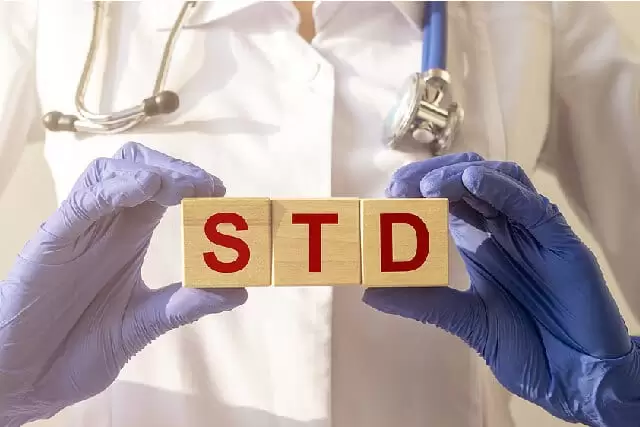HPV and Cancer: Understanding the Risks and the Role of Vaccination
Human Papillomavirus (HPV) is one of the most common sexually transmitted infections in the United States, and it’s a leading cause of several types of cancer. Despite its prevalence, many people don’t fully understand the link between HPV and cancer or the crucial role that vaccination plays in prevention. Whether you’re looking to protect yourself or your loved ones, it’s important to be informed about HPV and its potential risks.
What Is HPV?
HPV is a group of over 200 related viruses. Some types cause warts on different parts of the body, such as the hands or feet, while others are spread through sexual contact and can infect the genital areas, mouth, and throat. HPV is so common that nearly all sexually active people will get it at some point in their lives, even if they have few sexual partners.
Most HPV infections clear up on their own and do not cause any health problems. However, certain high-risk types of HPV can lead to cancers of the cervix, vagina, vulva, penis, anus, and throat (oropharyngeal cancer). It’s these high-risk strains that are the most concerning, making the connection between HPV and cancer critical to public health.
How HPV Leads to Cancer
Not all HPV infections cause cancer. The high-risk types of HPV can cause changes in the cells they infect. If these infections do not clear up on their own, they can cause cells to become abnormal. Over time, these abnormal cells can turn into cancer.
Types of Cancers Linked to HPV
- Cervical Cancer: Almost all cases of cervical cancer are caused by HPV. It’s the most well-known HPV-related cancer and can be detected early with regular Pap tests.
- Oropharyngeal Cancer: This cancer affects the middle part of the throat, including the base of the tongue and tonsils. HPV is now a leading cause of oropharyngeal cancer in the U.S.
- Anal Cancer: Both men and women can develop anal cancer from HPV. The risk is higher in individuals who have receptive anal sex.
- Penile Cancer: Though less common, HPV can cause cancer of the penis.
- Vulvar and Vaginal Cancer: HPV can cause cancer of the vulva (the outer part of the female genital organs) and the vagina.
The Role of Vaccination in Preventing HPV and Cancer
The HPV vaccine is a powerful tool in the fight against HPV-related cancers. Approved for use in both males and females, the vaccine protects against the types of HPV that most commonly cause cancer. It’s most effective when given before an individual becomes sexually active, typically recommended at ages 11 or 12, but it can be administered as early as age 9 and up to age 45.
How the HPV Vaccine Works
The HPV vaccine works by stimulating the body’s immune system to produce antibodies that, when exposed to the virus in the future, can attack and destroy the virus before it causes infection. The vaccine is highly effective at preventing infections with the HPV types it covers, which include those most commonly linked to cancer.
Who Should Get the HPV Vaccine?
- Preteens (Ages 11-12): The vaccine is recommended for all preteens to ensure they are protected before they are exposed to HPV.
- Teens and Young Adults: If not vaccinated as preteens, it’s recommended that teens and young adults get the vaccine as soon as possible, up to age 26.
- Adults (Ages 27-45): The vaccine is less effective in this age group because many adults have already been exposed to HPV. However, some unvaccinated adults may still benefit from the vaccine, especially if they are at risk of new HPV infections.
At Hope Across The Globe in Jacksonville, Florida, we provide the HPV vaccine as part of our comprehensive STD prevention services. Our team is here to answer any questions and guide you through the vaccination process to ensure you and your family are protected.
Why Is Vaccination Important?
Vaccination is crucial because it prevents the high-risk types of HPV that cause most cancers. By getting vaccinated, individuals can significantly reduce their risk of developing HPV-related cancers later in life. In addition to protecting oneself, vaccination also contributes to community immunity, reducing the overall spread of HPV.
Misconceptions About the HPV Vaccine
- “The Vaccine Encourages Sexual Activity”: Research shows that the HPV vaccine does not increase sexual activity. It’s about cancer prevention, not promoting sexual behavior.
- “Only Girls Need the Vaccine”: HPV affects both men and women and so does the vaccine. Boys need to be vaccinated, too.
- “I’m Too Old for the Vaccine”: While the vaccine is most effective before exposure to HPV, adults up to age 45 can still get vaccinated. It’s best to talk to a healthcare provider about your risk factors.
Jacksonville STD Clinic: Testing and Prevention
For those living in Jacksonville, Florida, regular screening and vaccination are key components of HPV prevention. At Hope Across The Globe, we offer various services to help you stay informed and protected against HPV and other STDs. Our Jacksonville STD Clinic provides:
- HPV Vaccination: Available for preteens, teens, and adults who meet the criteria.
- Pap Tests and HPV Tests: For early detection of cervical changes that could lead to cancer.
- Counseling and Education: To provide information about HPV, cancer risks, and prevention strategies.
Early detection and prevention are your best defenses against HPV and its potential consequences. Our Jacksonville STD Clinic is here to help you every step of the way.
FAQs
1. What Are the Side Effects of the HPV Vaccine?
Most people experience only minor side effects, such as pain at the injection site, mild fever, dizziness, or nausea. Severe allergic reactions are rare. The benefits of the vaccine far outweigh the risks of these side effects.
2. Can You Still Get HPV After Being Vaccinated?
While the vaccine covers the most common cancer-causing strains of HPV, it does not protect against all types. It’s still important to follow recommended screening guidelines, like Pap tests for cervical cancer, even if you’ve been vaccinated.
3. How Effective Is the HPV Vaccine?
The HPV vaccine is highly effective when given before exposure to the virus. It can prevent over 90% of HPV-related cancers. Studies have shown significant declines in HPV infections and cervical pre-cancers in vaccinated populations.
4. Can HPV Be Treated?
There is no cure for HPV itself, but many HPV infections clear up on their own. Treatments are available for the health problems caused by HPV, such as warts or precancerous changes. Regular screenings can help catch these issues early.
5. Why Is the Vaccine Recommended at Such a Young Age?
The vaccine is most effective when given before any exposure to HPV, which is why it’s recommended at ages 11 or 12. It also generates a stronger immune response at this age, providing the best protection against future infections.
Conclusion
Understanding the link between HPV and cancer and taking preventive measures is crucial for your health and the health of your loved ones. Vaccination remains the best defense against HPV-related cancers, and it’s never too early to start protecting yourself.
At Hope Across The Globe in Jacksonville, Florida, we are committed to providing the resources, information, and care you need to make informed decisions about your health. Whether you’re considering the HPV vaccine for yourself or your children, our Jacksonville STD Clinic is here to support you with expert guidance and compassionate care. Don’t wait—take a step toward prevention today.
Related Tag: Jacksonville STD Testing






